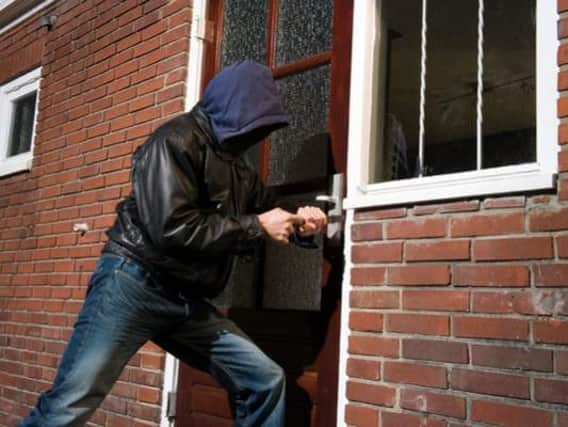This is what the law says you can legally do to protect yourself if an intruder enters your home


Burglars often target low security risk homes, but if you are unfortunate enough to encounter an intruder, what can you legally do to protect yourself?
What does the UK law say?
According to GOV.UK, you are allowed to "use reasonable force to protect yourself or others if a crime is taking place inside your home".


This means you can:
Advertisement
Hide AdAdvertisement
Hide Ad- protect yourself ‘in the heat of the moment’ - including using an object as a weapon
- stop an intruder running off - by tackling them to the ground, for example
However, there is no specific definition of 'reasonable force', as this depends on the specific circumstances.
If you did what you honestly thought was necessary at the time, this would provide strong evidence that you acted within the law, says GOV.UK.
Do you have to be attacked first?
Advertisement
Hide AdAdvertisement
Hide AdThe law states that you do not have to wait to be attacked before defending yourself in your home.
Although, you could face prosecution if take the following actions:
- carry on attacking the intruder even if you’re no longer in danger
- pre-plan a trap for someone, rather than involve the police
Can you chase after an intruder?
Yes, you are allowed to stop an intruder from running off.
Advertisement
Hide AdAdvertisement
Hide AdThis could be by tackling them to the ground, for example, which would likely be considered as 'reasonable force', says the Crown Prosecution Service.
What happens if the intruder dies?
The incident may still be classed as 'reasonable force', but this would again depend on the specific circumstances.
The CPS states: "The final consequences of a course may not be relevant to the issue as to whether the force used was reasonable.
"Although, the conduct of the suspect resulted in severe injuries to another or even death, this conduct may well have been reasonable in the circumstances.
Advertisement
Hide AdAdvertisement
Hide AdOn the other hand, the infliction of very superficial or minor injuries may have been a product of simple good fortune rather than intention."
What if an intruder is in the garden?
The law permits use of a reasonable force to defend yourself, or another person, from a crime.
However, the heightened defence for an intruder inside your home only applies if the intruder actually enters your property, or is on the threshold, for example within a door frame or window frame.
The CPS states you can only rely on the heightened defence for householders if:
Advertisement
Hide AdAdvertisement
Hide Ad"1) They are using force to defend themselves or others - They cannot seek to rely on the defence if they were acting for another purpose, such as protecting their property, although the law on the use of reasonable force will continue to apply in these circumstances.
“2) They are in or partly in a building or part of a building (e.g a flat) or is forces accommodation - For these purposes, the definition of a 'building' includes vehicles or vessels, so that people who live in caravans or houseboats can benefit from the heightened protection.
"The term 'in or partly in a building' is used to protect householders who might be confronted by an intruder on the threshold of their home, climbing in through a window perhaps.
"But householders cannot rely on the heightened defence if the confrontation occurred wholly outside the building, for example in the garden.
Advertisement
Hide AdAdvertisement
Hide AdThe Government considered that the immediacy of the threat posed by an intruder is greatest when he is entering, or has entered, somebody's home and the heightened defence is only available to householders in those cases."